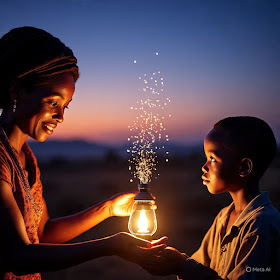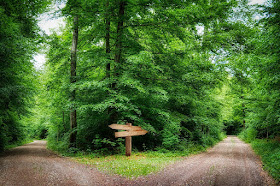By Sola Adeyegbe
This question may appear simple at first, yet the moment we look closely, it opens a deeper, richer, and far more empowering understanding for both parents and children. Many people grow up believing, “My parents brought me here, so they owe me everything.” We often hear statements such as, “It’s not my fault I’m here” or “They must take care of me because they gave birth to me.” On the other hand, many parents are saying, “I brought you into the world, so your life is my responsibility forever.” Both views, although common, can quietly imprison rather than liberate.
A clearer and more liberating truth emerges when we reflect with calmness: no soul arrives on earth by accident or force. Every human being comes into this world either through their own longing or as part of their own journey of learning. Parents simply provide the physical doorway, the body through which an already-existing soul may enter earthly life. In this sense, every child is a guest, a full and independent personality who comes with their own history, strengths, challenges, and destiny. Parents offer the home, the shelter, the love, and the early protection needed for that soul to grow in its earthly form until the child can provide its earthy necessities independently. Everything beyond that is a generous gift. There is no question of lifelong debt.
This understanding does not weaken the healthy bond between parent and child; it deepens it. It removes the heavy weight of ownership and replaces it with gratitude, respect, and purpose. A child, when they recognise this truth, begin to see life not as something that was imposed upon them, but as a rare and precious opportunity. Instead of saying, “My parents owe me,” a higher thought arises: “I have been given an opportunity to live: what will I make of it?” Such a realisation awakens responsibility, courage, and independence.
At the same time, parents still carry sacred duties. By choosing to bring forth a body, they assume the responsibility of caring for that body, guiding it, nurturing it, and supporting it until the child matures and can stand on their own feet. This duty is profound. Yet once that stage has been reached, it becomes unhealthy for parents to cling to control or to feel eternally responsible for every choice their adult children make. In the same way, it becomes limiting for children to continue leaning on their parents or holding entitlement in their hearts. Growth requires independence, and love flourishes best when it is voluntary, not demanded.
Sadly, many cultures including ours have built long-standing habits of dependency, entitlement, and unwritten obligations among both parents and children. These traditions may appear harmless, but in reality they stifle growth, distort relationships, and prevent individuals from becoming truly free. When we pause to examine them honestly, we often find they produce subtle resentment rather than unity. It is only through understanding the deeper spiritual nature of life that we can break these chains and allow genuine love, respect, and responsibility to take root.
When parents recognise that they provided only the physical gateway, and children understand that they came with their own destiny, the relationship between both sides becomes far richer. It becomes a healthy bond of freedom, appreciation, and mutual respect rather than rigid obligation. Parents can guide without interfering, and children can love without demanding. And together, they can help one another grow in strength, wisdom, and joy.
May we all take a moment to reflect on these with openness and sincerity. In doing so, we may discover a healthier, happier way to honour the sacred journey between parent and child, one built not on claims or blame, but on gratitude, clarity, and a deep sense of responsibility for the life each of us has been given..





